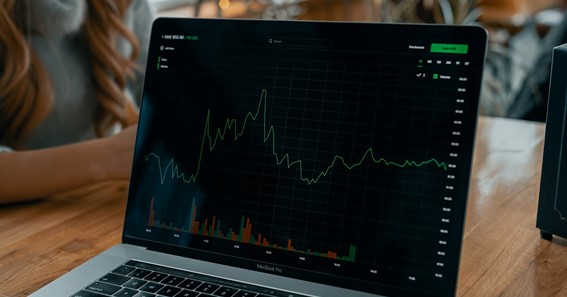Unlike the stock market itself, you as a trader are a human being with emotions. In that sense, it is important to understand how emotions have a great influence on how both the individual stocks and the market move.
At first glance, trading psychology may seem like a fairy tale, but it is not; it is a real approach to creating a proper mindset.
One of the greatest personal projects a person can embark on is trading. This is primarily because it may be both tough and time-consuming at times.
However, despite the hurdles, the benefits may be enormous—and not just financially. It’s one of the few jobs where your level of success is directly linked to your self-perception. To put it another way, trading psychology is critical.
click here – What Does A Massage Therapist Do?
Create a Good Strategy
A trading strategy may be improved by evaluating chart patterns, setups, and trade plans. That’s why different trading companies offer different services.
For example, Triad Securities trade execution services focus on extending to the well-being and success of their clients. This kind of work is done by reducing friction in one’s trading activity, ultimately saving them time and resources.
But why is it so important to focus on the well-being of people in business? To be a successful trader for the long term, you must have the ability to remain composed under pressure and avoid making irrational decisions.
So before even creating the overall trading strategy, it is crucial to first cultivate the correct mindset for the work.
Many small psychological improvements can hugely impact one’s ability to trade with a level head. By concentrating just on you, the trader, you are able to develop your own psychology in the context of work.
But, what can you do to start creating a winning attitude which will separate you from the others?
click here – Effective Methods to Recover Word Documents
Understand Your Emotions
You may have heard the saying: “The market never changes because people never change.” How much of it is true?
Unlike science, which is exact all the time, trading has a lot to do with people’s emotional decisions to buy and sell. It may not always be rational and easy to understand.
Think about how you react to a deal in terms of your emotions. When you start losing money, you may discover a pattern. You may panic and justify hanging on to the position longer, thinking things would turn around instead of cutting losses soon.
You’ll be able to see any weaknesses in your trade skills if you’re aware of your own particular inclinations and emotional responses to them.
Some may advise you to trade as if you were a machine, relying only on data and statistics and displaying no signs of emotion at all throughout the process. But as much as you may want to, you’re only a human being.
In trading, you will never be able to completely turn off your emotions. Instead of running away from them, it is important to understand them and foresee any sensation that may take you off the rails.
Acquire a Wide Range of Knowledge
In order to make better selections in the short and long term, you need to have a solid understanding of how trading works.
Day trading may be a nerve-wracking experience if you don’t understand the fundamentals of it all. You will be thrown several curveballs throughout the course of a transaction. Your role is to respond based on facts and logic, not on your emotions.
Taking the time to educate yourself may help you make better choices and avoid risk. This will allow you to make better selections as a trader if you’ve got a solid foundation of information.
Learn all you can about the workings of the financial markets. Examine the previous performance of stocks to have a better understanding of their behavior and reactions. The best way to learn about trading is to do a lot of research and keep up with current events.
You’ll be able to make better informed and tactical selections regarding transactions if you keep up with these practices.
Develop Different Attitudes
Having a streak of successful transactions has a positive effect on your outlook. You can’t beat the high you get when you’re playing at your peak level. Like you and the market are inseparable, the money just appears in your bank account.
Only by approaching the market with a can-do attitude will you be able to achieve this state of mind. Although it doesn’t entail an “I’m right” mentality, you accept that the market will offer whatever it wants to. With a positive outlook, you widen your options for new experiences.
But what if you end up in a losing situation? As vital as it is to imagine a huge triumph, it’s also a good idea to think about what it might be like to lose large.
A good way to avoid making silly mistakes is to practice self-examination. By imagining the worst-case scenario, you may take preventative measures that might spare you from blowing your bank account.
Trades may be harmed by the element of surprise, which might force you to make rash decisions. In the event that anything goes awry, a list of potential problems might assist in keeping your head in the game.
It is possible to create a more precise trading strategy with entry and exit points that protect you from losing money if you think about what may go wrong during a transaction. Plans that are more realistic are more likely to be adhered to.
Observe Others and Yourself Equally
Learning from great traders and incorporating their strategies into your own may be a very effective approach to improving your trading results.
You may become a better trader by combining the approaches that have worked for others. It’s an illustration of how a positive trading mindset may have a beneficial impact.
Consider what others are doing well and copy them. Make an effort to adapt their approaches, habits, and qualities into your own distinctive exchange style.
There may be patterns, or things you’re doing that are working well, so keep track of them. A journal (online or offline, depending on your preference) is a great way to keep track of what you’ve accomplished.
Recording what you’re doing may be a time-consuming practice but a worthwhile endeavor that provides a sense of what’s being done incorrectly.
In the long run, this record will help you simplify and enhance your trading and strengthen your mental clarity on every single deal.
Don’t Forget About Yourself
When it comes to pointing out your shortcomings, don’t be too self-conscious to do so. It might be therapeutic to reflect on your market blunders.
As a result, you come to see that your problems have less to do with your hardware and more to do with your mentality when it comes to business. To put it another way, it helps you understand and control your own trading mindset.
Key Takeaways
Be aware that your system, trading equipment, and internet speed have nothing to do with success in the stock market. What matters most is your ability to take full responsibility for your trading outcomes.
The notion of probability and not having to be correct on every deal is a belief that many traders hold.
Investing time in improving your own trading mindset will pay dividends in the long run.
The mental and emotional aspects of trading are so crucial; thus, you must be careful not to let your emotions get the better of you.
Author bio
Travis Dillard is a business consultant and an organizational psychologist based in Arlington, Texas. Passionate about marketing, social networks, and business in general. In his spare time, he writes a lot about new business strategies and digital marketing for Seo Turnover.









